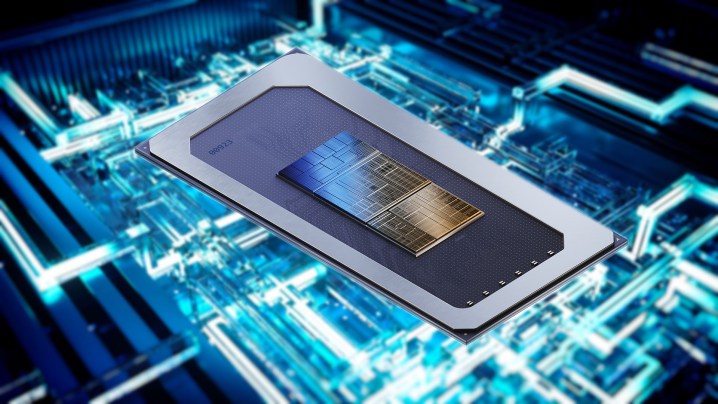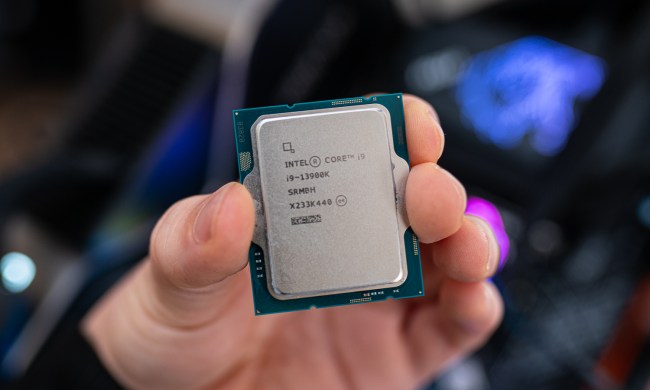
Intel thinks your next processor upgrade should include a dedicated AI processor and its upcoming Meteor Lake chips conveniently fill that gap. The company detailed how it suspects its Vision Processing Units (VPUs) will be leveraged at Computex 2023, and it’s including these processors stock on every Meteor Lake chip.
The VPU isn’t new. Intel introduced this dedicated AI processor with its 13th-gen Raptor Lake processors, but only on a select few models. The company says they’ll come on all Meteor Lake chips, which are slated to launch at the end of 2023.
Intel’s idea is simple: move AI processing that’s already happening on the CPU and GPU off to a dedicated processor. According to Intel, over 100 apps are already leveraging AI on the CPU or GPU, including the Adobe suite, Microsoft Teams, Avid Pro Tools, xSplit, Zoom, and Unreal Engine. The dedicated VPU is not only more power-efficient for these tasks to save battery life, but they also allow you to run much more complex AI models.
According to Intel, seemingly quaint effects like background replacement in Microsoft Teams and dynamic noise suppression have gotten exponentially for sophisticated over the last couple of years. Compared to 2021, Intel says background replacement is 10 times more complex, and dynamic noise suppression is 50 times more complex today.
With these effects, Intel says the VPU offers 10 times the AI computational power of running them on the CPU at only a fifth of the power. Although this efficiency is mostly focused on laptops, Intel made it a point to discuss power density with its VPU, with more efficient designs ultimately representing more peak performance. We could see more powerful dedicated AI processors if there are enough applications to leverage them.
Intel doesn’t want to offload all work to the VPU. The CPU and GPU still have their place. According to Intel, the GPU is still an ideal option for media creation tasks involving AI, while the CPU can handle simpler AI tasks that require very low latency.
In addition to providing more power to AI programs, Intel says the dedicated processor can improve overall performance. The company demonstrated this with Unreal Engine, where the VPU analyzed footage to create a mesh on a virtual avatar. This is normally handled by the GPU, so moving the task off to the VPU leaves the GPU open to handle other processing.
There could be some interesting use cases in the future. For instance, Nvidia’s Broadcast uses AI processors on RTX graphics cards for background blur, auto reframing, and eye contact features. You could move that work off to the VPU to free up the graphics cards for higher performance in games, especially if you’re using Broadcast is a streaming-style scenario.
Intel isn’t the only one focused on building AI into its processors. AMD Ryzen 7000 mobile processors also feature an AI processor, dubbed Ryzen AI. It should have similar applications as Intel’s VPU, though AMD hasn’t detailed its capabilities.
For now, these AI processors seem mostly focused on laptops. Rumors suggest Intel’s Meteor Lake may skip desktop entirely, while AMD hasn’t included its AI processor in Ryzen 7000 desktop processors. There may be a use for a dedicated AI processor on desktops in the future, but it seems Intel and AMD aren’t devoting too much attention there yet.



